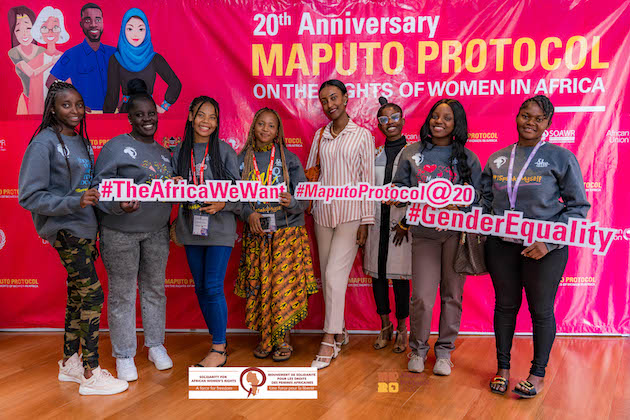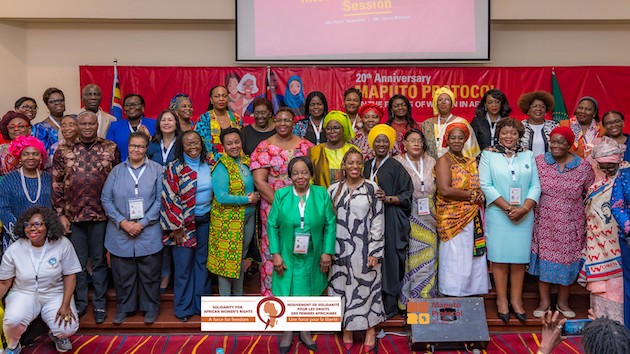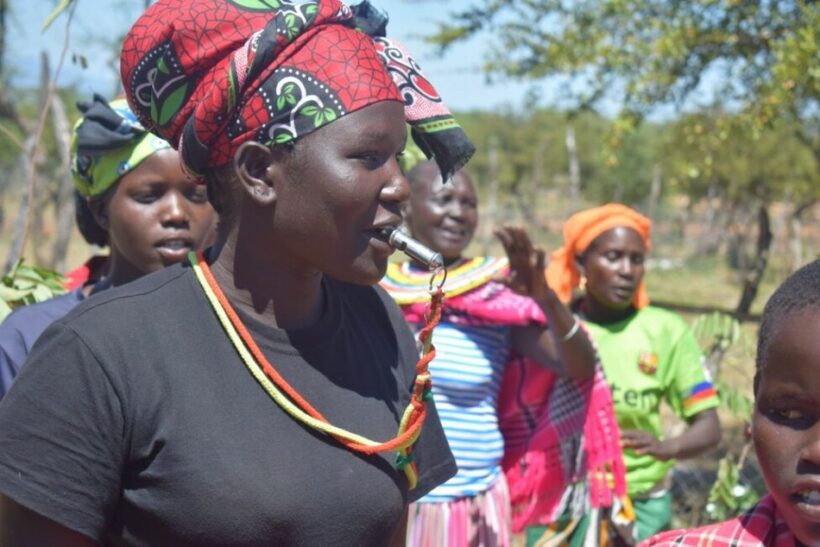It promised to be the most defining, innovative and transformative protocol on African women’s rights. Specific in its approach, broad in its scope and unique in its comprehensive nature, covering issues such as HIV/AIDS, widows’ rights and access to property inheritance in an unprecedented way.
By Joyce Chimbi
To halt and reverse systemic and persistent gender inequality and discriminatory practices against women in Africa, the Assembly of the African Union (AU) adopted the Protocol to the African Charter on Human and Peoples’ Rights on the Rights of Women in Africa on 11 July 2003 in Maputo, the capital of Mozambique.
The Maputo Protocol, as it is known, entered into force two years after and was designed in accordance with the realities of the plight of women on the continent. It provides tailor-made solutions to remove it from the crushing weight of a cultural system that disadvantages women from birth.
Twenty years after, the time has come to take stock.
“The 20th anniversary of the Maputo Protocol is a historic moment for women’s rights defenders. It provides an opportunity to demand real and tangible changes for women and girls in their countries from African governments,” Faiza Mohamed, Africa regional director of Equality Now, told IPS.
In her view, compliance with and accountability to the Protocol “represents generational shifts over two decades and points to the need to reflect on future generations and future-proof the Maputo Protocol and the Solidarity for African Women’s Rights (SOAWR) coalition.
SOAWR brings together more than 80 civil society organisations, a pan-African women’s movement pushing for accelerated ratification of the Protocol in states that have not yet done so, while holding governments accountable for their actions for women under the Protocol.
Mohamed stresses that SOAWR is a notable testament to the power of organised women’s movements and their ability to influence transformative political agendas, having a lasting impact.
“Thanks to its consistent efforts, SOAWR has managed to keep the Protocol on the agenda of AU Member States, which has made a significant impact, as 44 out of 55 African States have ratified or acceded to the Maputo Protocol,” she explains.
This achievement has turned the Protocol into a powerful public education tool for women’s rights, both at national and grassroots levels,” she says.

Youth delegates at a meeting in Nairobi for it to make a stocktaking of the Maputo Protocol for Women’s Rights, 20 years after its adoption. Image: Equality Now
“In particular, there have been substantial advances in national jurisprudence on women’s rights, as well as in the empowerment of women themselves,” she says.
For Mohamed, “thanks to the coalition’s effective public awareness campaigns, previously taboo topics such as sexual and reproductive health rights, female genital mutilation and polygamy have become open and advanced issues in several countries”.
The coalition has shown how much women and like-minded partners can achieve by working in solidarity. In addition, each organisation continues to push the women’s agenda in the same direction, for it to make the dream of a society where women are fully represented in all spaces a reality.
“The Maputo Protocol comes out of the African feminist fire, and we have to keep it burning. It is one of the most progressive legal instruments to emerge from Africa. It represents our diversity and our force, because we are not a monolith,” says Becky Williams, a young Nigerian woman currently living in Uganda and working for the non-governmental organisation Akina Mama wa Africa.
The 20-year-old instrument, she adds, “also represents the power of collective action and also the dream of the Africa we want”.
Equality Now is currently advocating for the adoption of the Multisectoral Approach in the implementation of the Maputo Protocol. Such an approach provides a framework for convening different sectors within governments and actors outside governments in a joint effort to implement the women’s rights provided for in the Protocol.
Mohamed stresses that, if recognised and owned by governments and civil society, the Maputo Protocol can be a powerful instrument for change, as it offers women a tool to transform the unequal power relations between men and women that are at the heart of gender inequality and women’s oppression.

Family photo of delegates to a meeting for the 20th anniversary of the Maputo Protocol, held in Nairobi, the capital of Kenya. Image: Equality Now
To coincide with the anniversary of the Maputo Protocol, SOAWR, Make Every Woman Count and Equality Now published a report entitled “Twenty Years of the Maputo Protocol: Where Are We Now?”, detailing progress to date, successes, challenges and recommendations.
On rights related to marriage and child marriage, the report finds that several countries have adopted constitutional reforms related to the prohibition of forced marriage.
For example, Burundi’s constitution guarantees marriage equality. The constitutions of Guinea, Malawi, Uganda and Zimbabwe set the legal age of marriage at 18. AU member states have enacted laws on marriage-related rights.
In terms of economic and social welfare rights, half of African states maintain constitutional provisions guaranteeing equal pay for work of equal value or the right to fair or just remuneration. More than half of African States have laws mandating equal pay for work of equal value.
With regard to reproductive health and rights, almost all African States maintain constitutional provisions related to health and/or health care, and many enshrine the principle of non-discrimination on the basis of health.
In particular, six countries, including Angola, Ethiopia, Ghana, Kenya, South Africa and Zimbabwe, enshrine rights related to reproductive health care, such as access to family planning education or reproductive/maternal care.
While women’s rights have come a long way, particularly at the legal level, the report stresses that there is still a long way to go and makes specific key recommendations, such as the need to address abortion rights and to treat each case as set out in the Protocol.
It also suggests that the Maputo Protocol be used to protect the reproductive health rights of women and girls and advocates that Member States remove laws that go against these reproductive health rights.
It advocates the adoption of family laws that protect women’s rights before, during and after marriage, and the creation of special courts to deal with complex matrimonial issues.
In addition, it suggests that governments implement regional and international treaties such as the Maputo Protocol and educate women and girls about them.
It also urges the promotion of programmes to enable girls to return to school after giving birth and demands that early marriage be criminalised and customary law be adapted to stop marking women’s status within marriage.
It requests governments to provide universal health services and access to insurance, especially for pregnant, vulnerable, and/or specially protected women. At the same time, it calls on Member States to improve the infrastructure, formation, and equipment of health services in rural areas.
Equally important, the Protocol includes empowering women and girls to exercise their sexual and reproductive health rights through awareness-raising campaigns in communities and schools and wants menstrual hygiene management to be incorporated into national legal frameworks through awareness-raising activities by more actors, especially parliamentarians.






